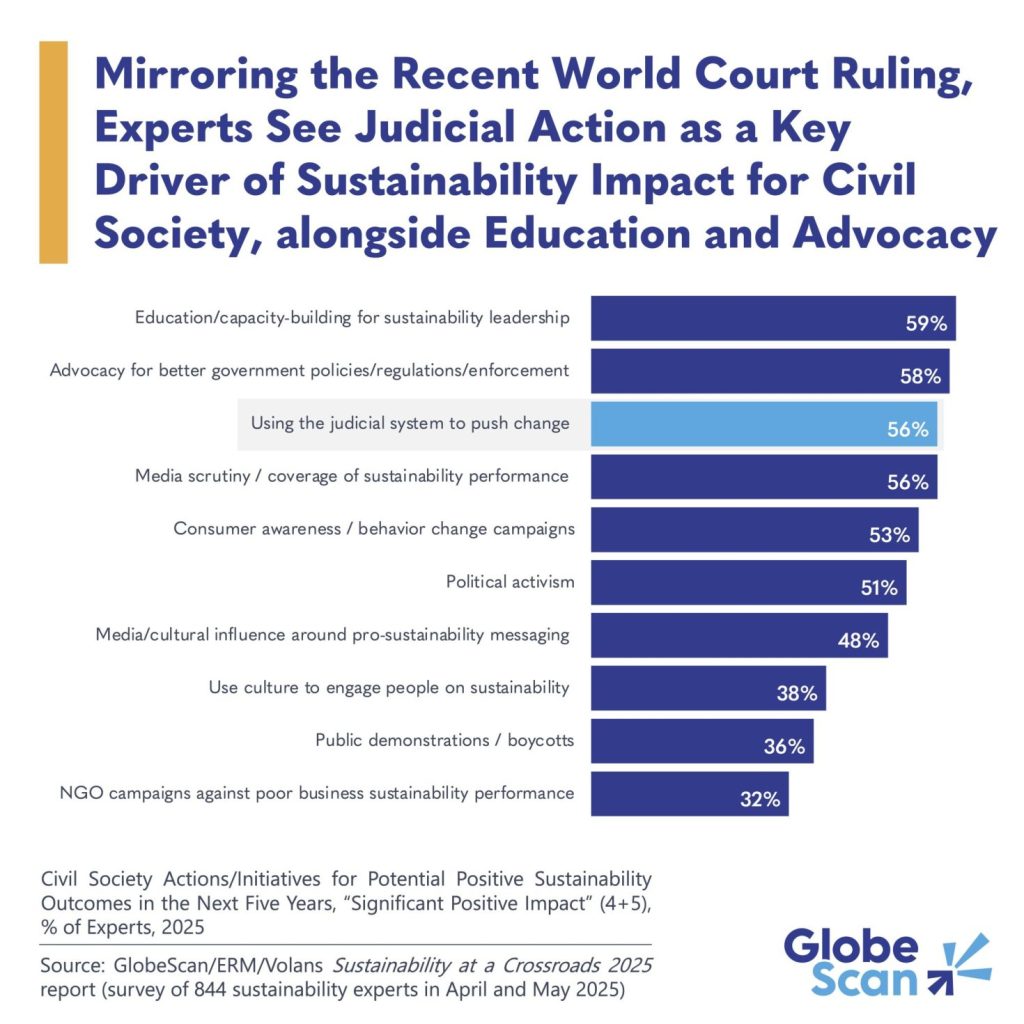See you in court: Judicial action is key driver of sustainability outcomes
Climate action is now seen as a legal imperative rather than a policy preference. Read More

- Judicial action is gaining momentum as a potentially high-impact strategy for driving sustainability.
- Legal accountability may reshape climate strategy, shifting focus from policy preferences to enforceable duties.
- Less systemic approaches, such as NGO campaigns and public protests, may have less potential to impact change.
Sometimes it takes a lawsuit to get things done.
Many sustainability experts say judicial action is one of the most powerful tools civil society can use to drive sustainability outcomes in the near term, according to a global survey by Trellis data partner by GlobeScan in collaboration with ERM and Volans. This view has gained significant traction in light of the International Court of Justice’s historic advisory opinion on climate change issued in July, which declares that a clean, healthy and sustainable environment is a fundamental human right.

The ICJ’s landmark ruling affirms that countries have legal obligations to prevent environmental harm under international law. Crucially, the ruling finds that states failing to meet their climate commitments are in breach of international law and that they must cooperate to achieve concrete emissions reduction targets. This reframes climate action as a legal imperative rather than a policy preference, and elevates the strategic importance of litigation, legal systems and accountability mechanisms in the global sustainability agenda.
Alongside legal avenues, experts also point to education and leadership development, policy advocacy and media scrutiny as top civil society strategies to accelerate progress. In contrast, less structured or symbolic approaches, such as NGO campaigns, public protests or boycotts are seen as less impactful in achieving systemic change.
What this means
The ICJ’s advisory opinion may be a turning point for climate justice. Although technically not legally binding, it sends a powerful message that could reshape international climate negotiations and jurisprudence. For the more than 3,000 pending climate lawsuits globally, the ICJ’s affirmation of legal obligations offers fresh momentum and potential legal precedent for holding governments and corporations accountable.
For businesses and policymakers, this means climate litigation risk is rising. The advisory opinion may also influence the tone of negotiations at COP30, fueling increased pressure for enforceable targets and climate finance for vulnerable countries.
Looking ahead, legal action may no longer be a last resort and could instead become a primary lever in the sustainability toolbox. Companies would be wise to monitor evolving legal norms, proactively align with international commitments and embed climate risk into their governance and strategy before courts and public pressure force their hand.
Based on a survey of 844 sustainability practitioners across 72 countries conducted April-May 2025.

Subscribe to Trellis Briefing
Featured Reports

The Premier Event for Sustainable Business Leaders
















